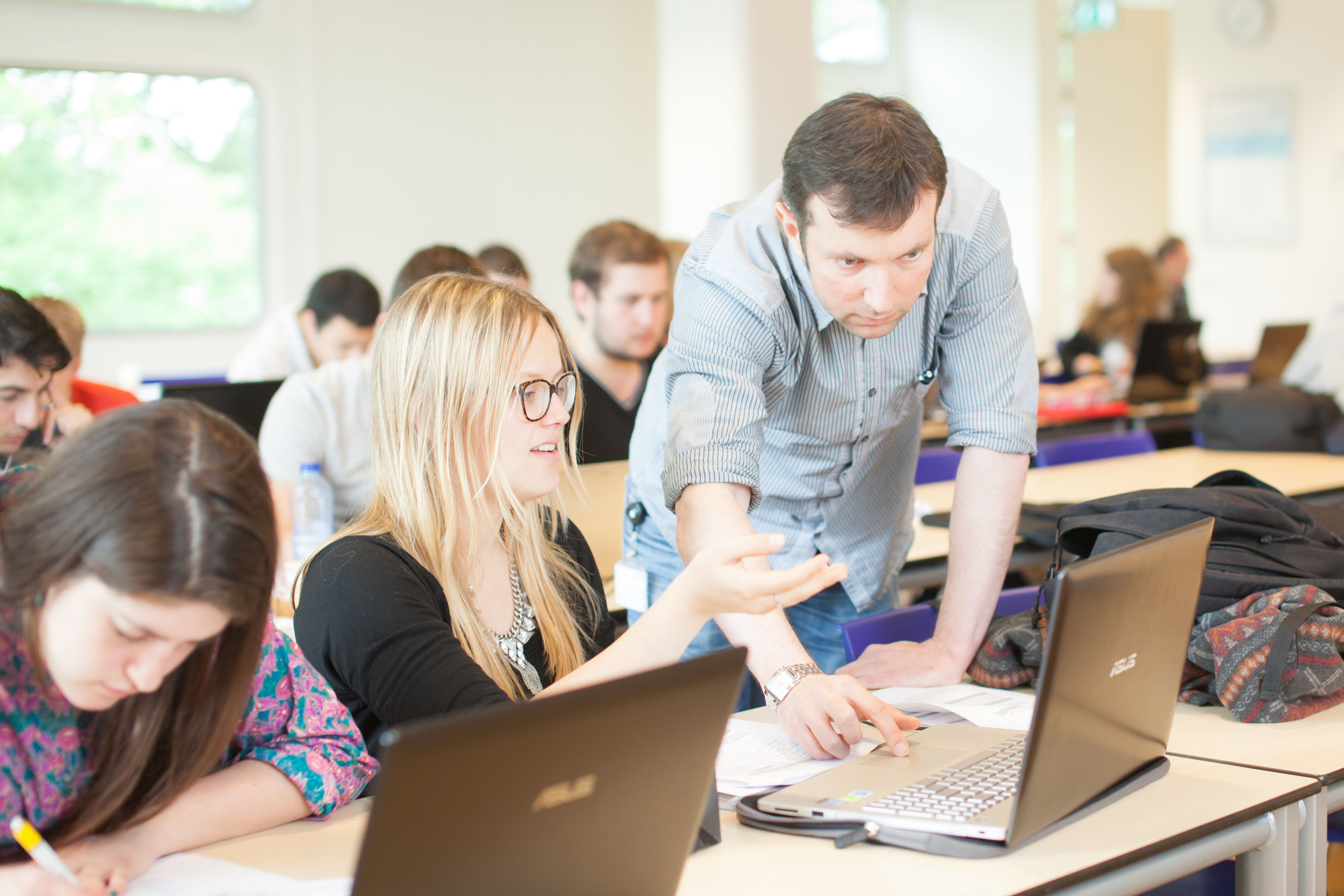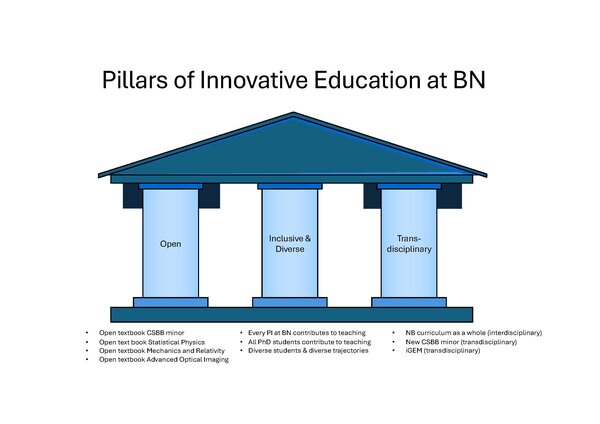BN faculty members teach master and bachelor courses in Applied Physics and, since 2012, in the bachelor program Nanobiology. Courses include statistical physics, biophysics, nanotechnology, optics and nanoscopy. The Nanobiology courses are provided in collaboration with the faculty of the Erasmus Medical Centre Rotterdam, where courses such as evolution, molecular cell biology and microscopy are taught.
The BSc Nanobiology studies the borders of physics and biology and how these two fields collide in fundamental medical research. It is a technological study that uses the language of maths within the context of physics to understand the complexity of biology. During the bachelor you will get a broad understanding of maths, physics, chemistry and biology. You will study cell processes and learn how to model the behaviour of molecules. You will learn how to work with advanced microscopes and how to code and program in order to do in-depth analysis and research. Nanobiologists use these skills to study and understand diseases such as cancer, Alzheimer's, diabetes, and infectious diseases. Yearly, about 100 new students start the bachelor Nanobiology program. For more information about the BSc Nanobiology, click here.
In the MSc Nanobiology, we integrate methods and theories from physics, and molecular biology, using tools from math and computer modelling to further understanding of the molecular basis of life. What you’ll learn in the Nanobiology master has direct applications in research. Developments in biomedicine, such as studies on human genome variation and the control of stem cells, increasingly require analysis and quantitative description at the fundamental level. Moreover, it is becoming possible to develop artificial biomolecules and nanoparticles with wide applications in research and medicine. The incorporation of new biological building blocks is highly promising in for instance industrial biotechnology and medical science. These advances will reshape many aspects of medical diagnosis and treatment. The rapid advancement of modern biomedical, biophysical and computational technologies promises to provide new tools to gain in depth knowledge of the fundamental molecular and cellular mechanisms controlling health or involved in disease.For more information about the MSc Nanobiologiy, click here.
All our faculty members guide several master and bachelor projects in their labs. Furthermore, a large number of graduate students and postdocs receive their research training in our department.
If you are enrolled as a student at the Delft University of Technology, you can look up the course schedules on Brightspace.
---
Pillars of Innovative Education
The three pillars of innovative education at the Department of Bionanoscience: Open—exemplified by multiple open textbooks; Inclusive and Diverse—where everyone in our department contributes to teaching, and individual student trajectories can be followed; and Transdisciplinary—integrating health and technology within the whole program.



